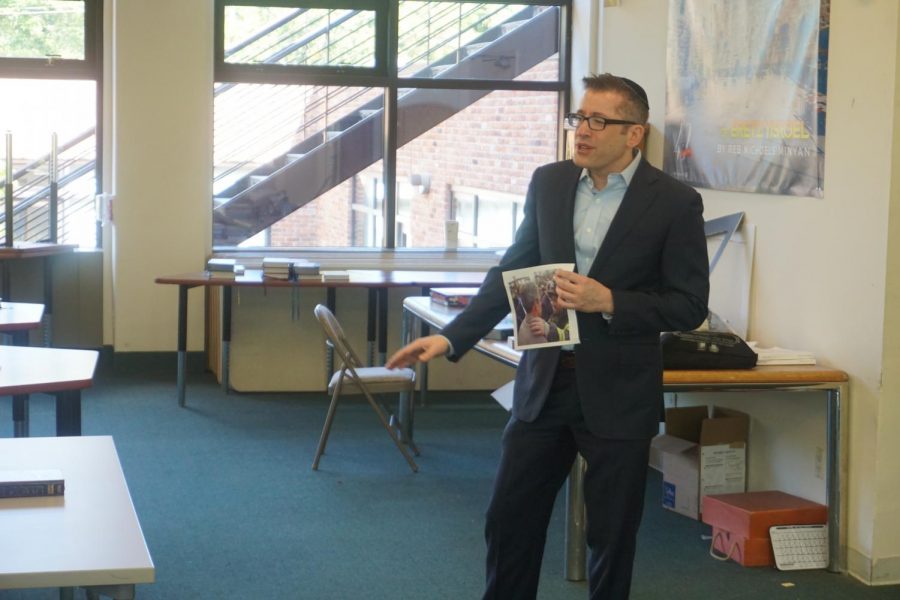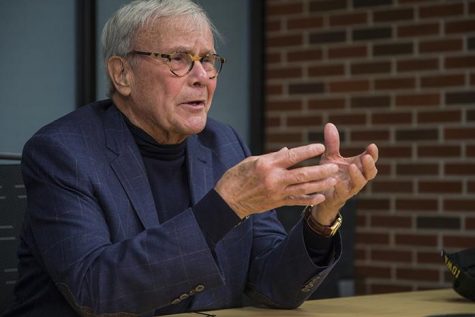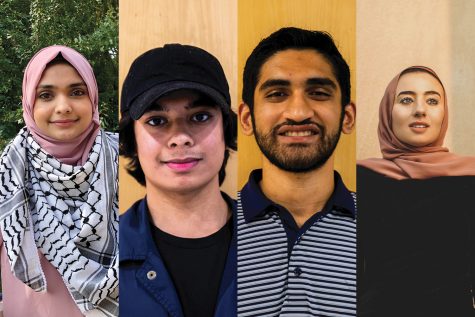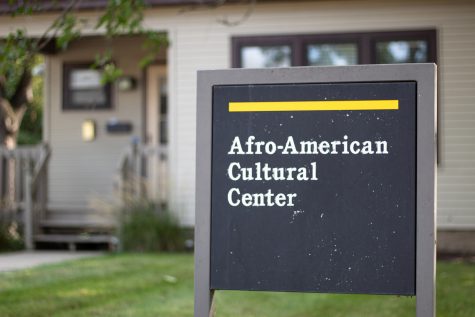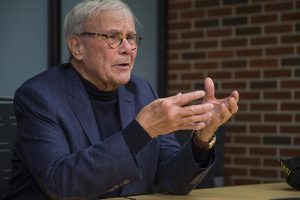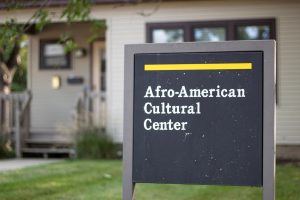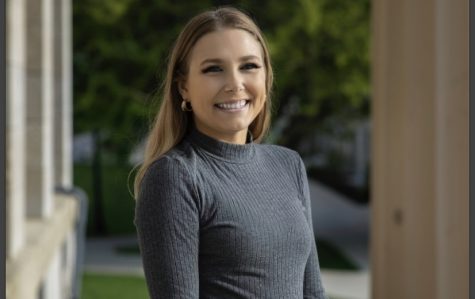UI alum, former New York firefighter reflects on 9/11 20th anniversary
University of Iowa alumnus and New Yorker Michael Weinstock was a volunteer firefighter when his department was called to help the rescue efforts after 9/11. Twenty years later, he reflects on that day.
Michael Weinstock speaks with students at Silverstein Hebrew Academy on Sept. 10, 2021.
September 12, 2021
Michael Weinstock was certain he was dreaming.
It was a clear, sunny day in New York City, and yet, somehow, it was snowing. The flakes drifted down around him softly, blanketing the world in silence and whiteness. But something was wrong — the snow was warm. It muted the world too suddenly.
“For about two or three minutes I felt nothing but relief because I was sure it was a dream,” he said.
Weinstock felt that way because, up until that moment, he had been witness to a tragedy. The University of Iowa alum was a volunteer firefighter and EMT on 9/11. The “snow” he and thousands of others saw was asbestos drifting down from the fallen World Trade Center twin towers.
Twenty years later, he can still recall the day in great detail.
Sept. 11, 2001 was supposed to be the first day of Weinstock’s vacation from volunteering at the station. He’d planned to meet up with friends from college in Chicago. When the announcer on his radio said a plane had struck one of the twin towers, he didn’t even climb out of his lofted bed to look out the window. His fire department was all the way across New York and had never responded to an accident in lower Manhattan, where he lived with a view of the towers.
But then the radio announcer, Howard Stern, started to sound panicked.
“That panic made me climb down and look across the river,” he said. “And I looked across, and I knew right away, from the incredible amount of black smoke pouring out the tower, that this was going to be a mass casualty incident with a huge number of fatalities.”
And so, Weinstock sprang into action. Grabbing only a fire department T-shirt and a bag of medical supplies, he flagged down the first ambulance he saw and jumped on.
When they arrived at the base of the towers, both were still standing, but it didn’t last long.
“We parked our rig and we were pulling out supplies, getting ready to go into the first tower,” he said. “As we were unloading the ambulance, I felt the ground shake, and I heard the loudest noise I’d ever heard in my entire life — just incredible rumbling.”
He made eye contact with his working partner. The two dropped their equipment and ran. The South Tower was coming down.
They ran into a bank and immediately began treating burn victims with water and seltzers that had been left out for a meeting that never took place. Weinstock then went outside to grab more medical supplies from an ambulance that hadn’t been crushed, but he was met with a peculiar sight.
“What had earlier been a very dramatic, frightening emergency scene turned into a snowy day outside,” he said. “It was warm snow, and it was landing just like snow, and just like snow quiets the whole world when there’s a full snowstorm, it was snowing outside and it was suddenly quiet.”
He felt relief – but it was short lived — the second tower came down shortly after, while he and others were helping move an injured firefighter. This was no dream — it was a never-ending nightmare.
The nightmare only worsened when later that day, Weinstock learned that his close friend Johnathan Ielpi had died.
“That’s when the day went from surreal to tragic,” he said.
Weinstock says it still stings each year when the anniversary of 9/11 comes around, but 20 years later, he said that what he remembers most of all is how people helped one another that day.
“The immigrants at their pushcarts who didn’t run away when they were scared but stayed at their pushcarts and gave away all the bottles of Snapple iced tea and all the water to people running by who were scared—I think of that.” he said. “I think of the men at the base of the Manhattan bridge who weren’t rescue workers, but they stayed for hours helping people climb up on the roadway and get secure and on their own two feet before walking across the Manhattan bridge.”
Most of all, he said, he thinks of his friend.
“I loved him like a brother,” he said. “He was an awesome guy with a mischievous sense of humor, and a wonderful, yet imperfect, sense of right and wrong, and I miss him.”



